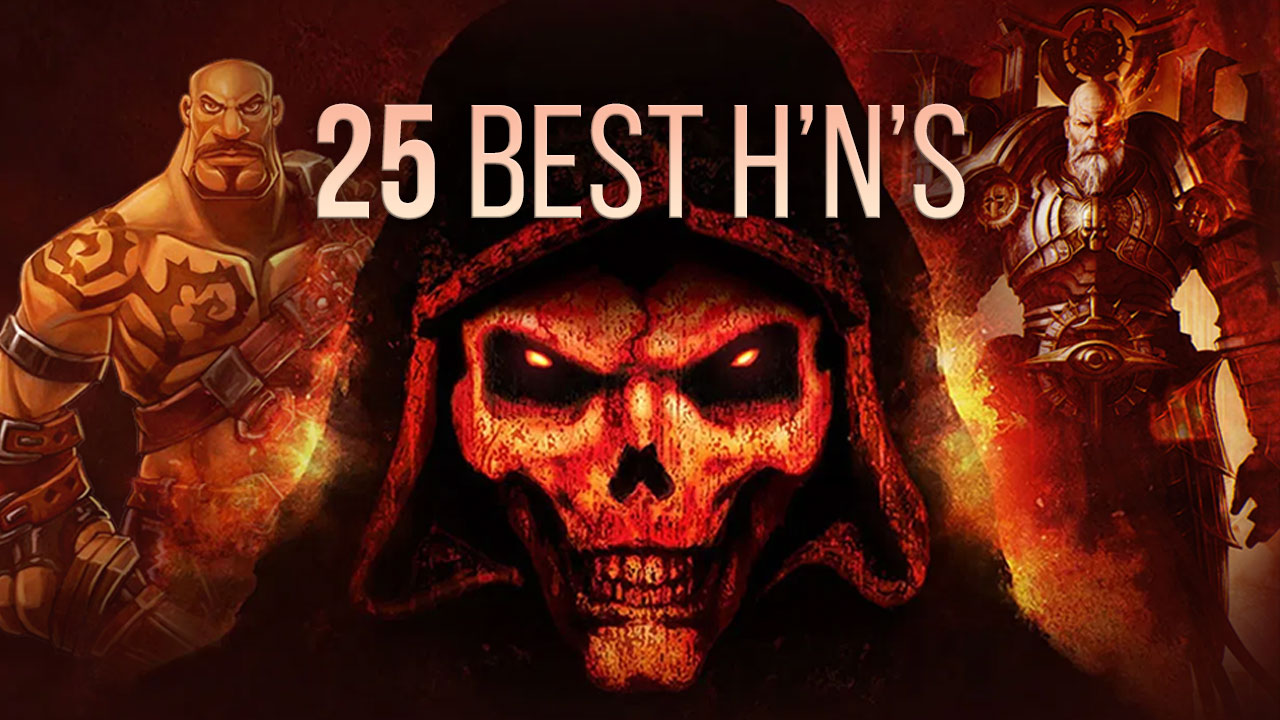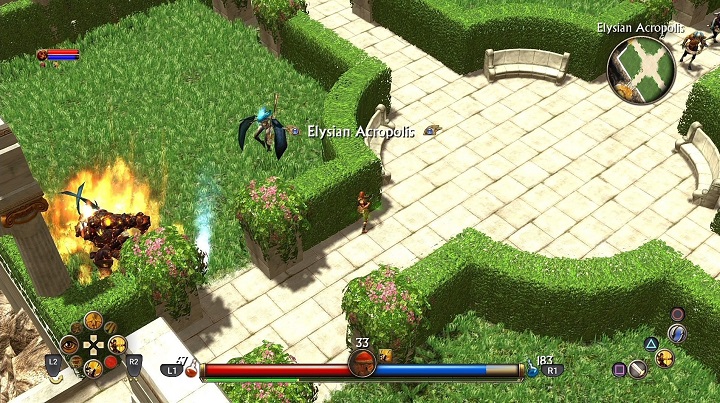9. Titan Quest: Anniversary Edition. 25 Best Hack'n'slash Games - Devilishly Good List!

- 25 Best Hack'n'slash Games - Devilishly Good List!
- 25. Victor Vran
- 24. Diablo Immortal
- 23. Shadows: Heretic Kingdoms
- 22. Book of Demons
- 21. Dungeon Siege II
- 20. Torchlight
- 19. Sacred
- 18. The Incredible Adventures of Van Helsing II
- 17. Last Epoch
- 16. Nox
- 15. Darksiders: Genesis
- 14. The Incredible Adventures of Van Helsing
- 13. Dungeon Siege
- 12. Warhammer 40,000: Inquisitor - Martyr
- 11. Wolcen: Lords of Mayhem
- 10. Bastion
- 9. Titan Quest: Anniversary Edition
- 8. Hades
- 7. Torchlight 2
- 6. Diablo
- 5. Diablo 3
- 4. Grim Dawn
- 3. Diablo 4
- 2. Diablo 2
- 1. Path of Exile (PoE)
9. Titan Quest: Anniversary Edition

Launched in 2006, Titan Quest is a hack'n'slash game that evokes strong emotions - many consider it a revelation, although there are also critics who point out various shortcomings to the developers from Iron Lore Entertainment. In any case, in our community, as you can see, the former view prevails.
The strongest point of Titan Quest are undoubtedly the realities in which the adventure takes place. It's not about the plot, because this one doesn't deviate from the hack'n'slash canon - behold, mythological titans are escaping from their eternal prison to cause people some mischief, and since the gods wash their hands of this, the only one who can thwart titan's plans is, of course, the player-driven hero. In the story being told, it's vain to look for exciting plot twists, so there's no need to write more about it - the key here is the word "mythological" used in the previous sentence.
That's right, Titan Quest takes us into a world straight from Parandowski's books - and not only because the mythical Ellas is only a part of the visited area here. In pursuit of evil forces, we travel through Egypt, Mesopotamia, and China to reach the finale on Olympus. In essence, the driving force of the game isn't the combat or character development, but the atmosphere. Visited locations (e.g. Sparta, the pyramids of Giza, Hanging Gardens, the Great Wall) and their extraordinarily vivid designs, music, opponents taken from old myths, independent characters (Leonidas). And finally, tales passed on by storytellers in cities and villages - all this builds up an incredible atmosphere, to which the gameplay could be just a bonus.
But there is nothing to be ashamed of in terms of Titan Quest mechanics. Just completely original mechanics of character development, without the traditional class system - we start without choosing a class and after several level-ups, we choose two schools of skills, which we develop as we want for the rest of the game. The issue of loot was also resolved in an interesting way. The developers approached the matter in a slightly unconventional way, i.e. they excluded situations in which we pull bags of gold and full armor from the guts of killed wolves.
Not counting magical pieces of relics, every creature drops exactly what it should. And the best part is that the developer managed to reconcile authenticity with the collection of attractive items. And then there's the combat - today it's no longer a sensation, but in 2006, Titan Quest provided a one-of-a-kind experience thanks to the ragdoll effect. I played as a mage wielding earth magic only to blast my opponents with exploding projectiles. The graphics were also stunning, and still manage to impress even today.
Someone would say that the star of Titan Quest faded quickly - the game also received the Immortal Throne expansion in 2007 (introducing an act taking place in Hades), and a year later, Iron Lore Entertainment was forced to close its doors.
So what a surprise it was when, after 10 years, we received Titan Quest: Anniversary Edition, a refreshed version of a great good. The package even includes the Immortal Throne expansion, which isn't often seen. The AI has been improved, the character and item balance has been adjusted, and the inventory capacity has been increased. It's worth noting that the Anniversary Edition also brings a wide range of new enemies, further extending the game time!
Is that not enough? A year later, the Ragnarok expansion appeared, introducing the northern part of Europe and the fifth story act. We can meet the Nords or the Celts, and even visit the land of the gods of Asgard. In addition, the developers raised the maximum experience level to 85 and they introduced the tenth mastery, which combined with the base game, gives a total of 45 combinations. Interestingly, the expansion slightly modified old locations and added new items and secrets.